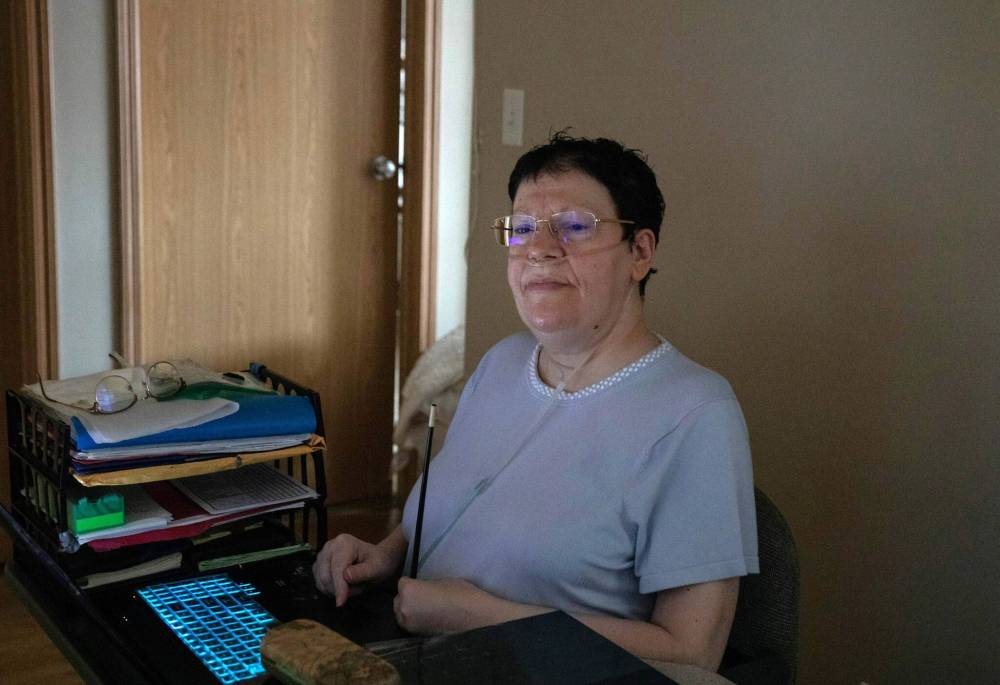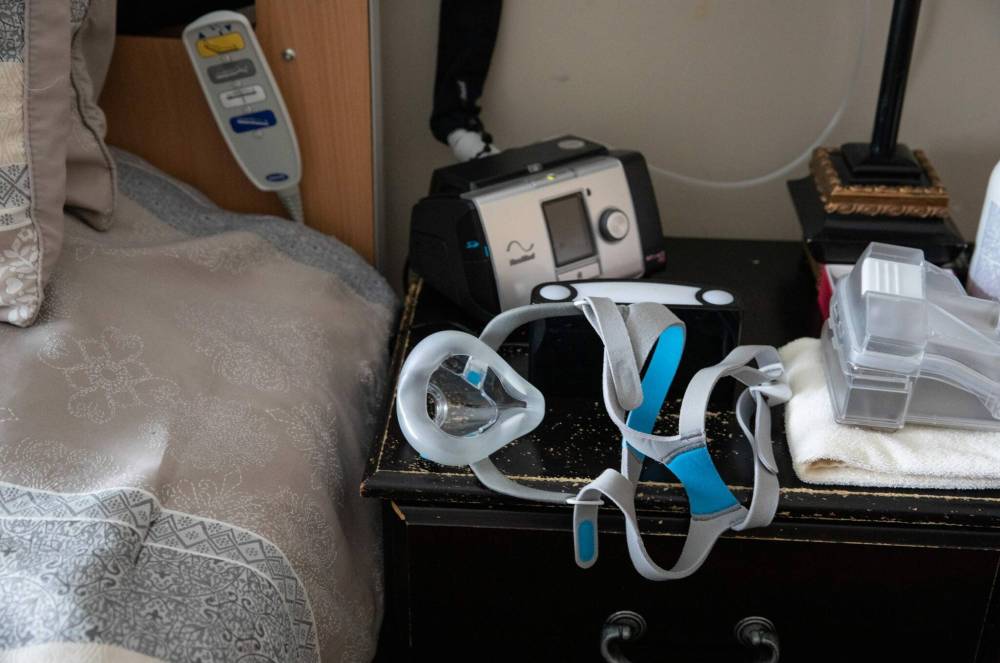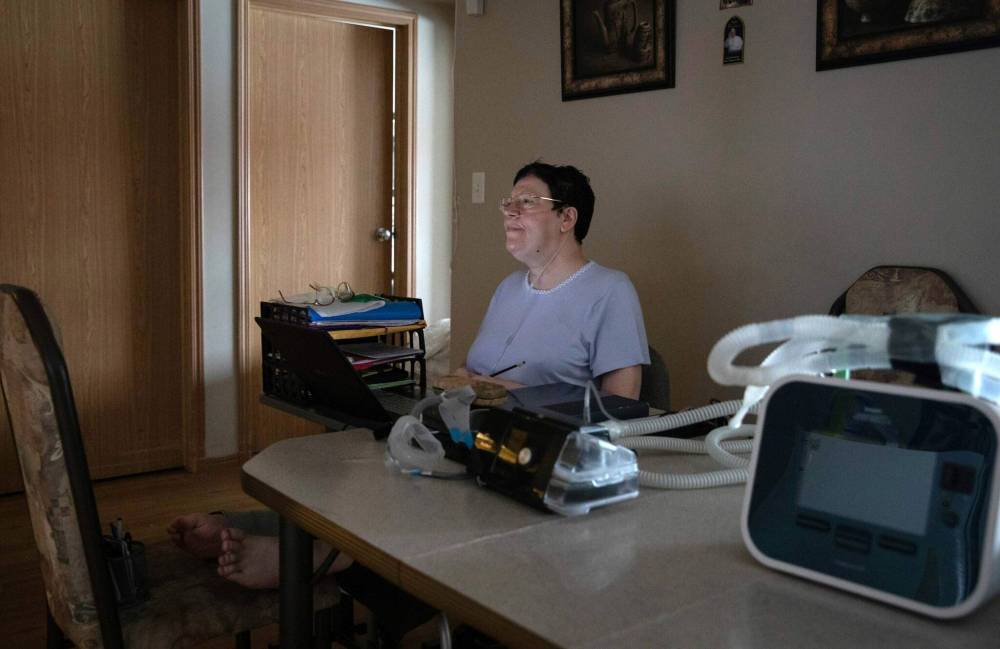Sisters start fundraiser for own home care
Advertisement
Read this article for free:
or
Already have an account? Log in here »
To continue reading, please subscribe:
Monthly Digital Subscription
$0 for the first 4 weeks*
- Enjoy unlimited reading on winnipegfreepress.com
- Read the E-Edition, our digital replica newspaper
- Access News Break, our award-winning app
- Play interactive puzzles
*No charge for 4 weeks then price increases to the regular rate of $19.00 plus GST every four weeks. Offer available to new and qualified returning subscribers only. Cancel any time.
Monthly Digital Subscription
$4.75/week*
- Enjoy unlimited reading on winnipegfreepress.com
- Read the E-Edition, our digital replica newspaper
- Access News Break, our award-winning app
- Play interactive puzzles
*Billed as $19 plus GST every four weeks. Cancel any time.
To continue reading, please subscribe:
Add Free Press access to your Brandon Sun subscription for only an additional
$1 for the first 4 weeks*
*Your next subscription payment will increase by $1.00 and you will be charged $16.99 plus GST for four weeks. After four weeks, your payment will increase to $23.99 plus GST every four weeks.
Read unlimited articles for free today:
or
Already have an account? Log in here »
Hey there, time traveller!
This article was published 12/01/2023 (1061 days ago), so information in it may no longer be current.
Two sisters who have a neuromuscular disorder and rely on home care fear they will lose their independence if their funding doesn’t increase.
Antonia Murgolo, 65, and Rosanna Murgolo, 55, have limb girdle muscular dystrophy. They need help 24 hours a day, seven days a week. The Winnipeg Regional Health Authority pays for a care worker’s wages for eight hours a day.
“We’re just hoping some miracle comes out of it that will help us through this,” said Antonia.

The sisters, who rent a modest apartment in Rivergrove, have been enrolled in the provincial self- and family-managed care program, which is administered by regional health authorities, since 2008.
It allows people to hire their own workers and get taxpayer-supported funding based on an assessment of their needs. It’s an alternative to the regular health authority-administered program.
In 2008, they were assessed as needing just under eight hours of care a day, at $21.40 an hour, Antonia said.
Funding hasn’t increased as their conditions have worsened, the sisters say.
“We’re able to do less and less every year,” Antonia said.
The WRHA has raised the idea of them moving into a group home, but they oppose that option, she said.
“We are fully aware of what happens to helpless females in places like that. Even though not all places are the same, we are not willing to lose our independence, privacy and freedom to socialize with our family and friends on a daily basis,” Antonia said.

The sisters need help from morning to night from getting out of and into bed to dressing, washing and eating. Antonia requires a bi-level positive airway pressure machine to assist with her breathing, overnight and for part of the day after pneumonia weakened her lungs.
Since 2015, the WRHA has denied their requests for increased funding, most recently in September, Antonia said. The hourly rate provided by the province to health authorities hasn’t been raised since 2012, she said.
The sisters pool the money they receive from the WRHA which — once standard employment benefits are removed — comes to about $14 an hour for a worker to help with everyday tasks, a rate that’s not competitive.
They’ve racked up nearly $50,000 in debt since 2014 to bump up the rate they can pay to about $20 an hour. They resorted to selling their wheelchair van, Antonia said.
“We’re in a dire situation right now,” said Antonia, who thinks they can only cover about a month of expenses. “Where’s the money going to come from?”
Their appeal of the WRHA decision is set for a meeting at the end of the month, but the sisters don’t believe they will be successful.
A WRHA spokesperson would not speak about the sisters’ case, but said home care, including the self-managed program, is meant to supplement family and other supports for those living in the community, rather than replace it.

The authority follows Manitoba Health policies for the maximum number of hours of care a client can receive in the community, the spokesperson said.
“If the level of care required exceeds the maximum funding and hours provided… our case co-ordinators will start the discussion with clients about whether their needs can continue to be met in a community setting and potentially explore alternative options, such as assisted living, to ensure they are receiving the necessary level of care,” the spokesperson said.
The Murgolos created an online GoFundMe fundraiser last month. It had raised $450 of their $80,000 goal as of Wednesday.
erik.pindera@freepress.mb.ca

Erik Pindera reports for the city desk, with a particular focus on crime and justice.
Our newsroom depends on a growing audience of readers to power our journalism. If you are not a paid reader, please consider becoming a subscriber.
Our newsroom depends on its audience of readers to power our journalism. Thank you for your support.


